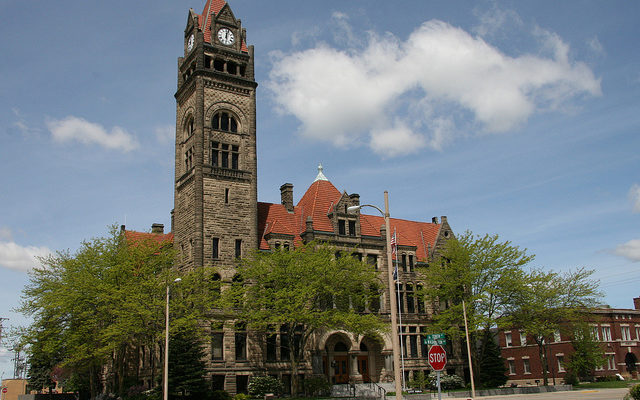John Durham testifies to Congress on FBI’s Russia probe

Washington — Special counsel John Durham, who scrutinized the origins of the FBI’s investigation into possible links between Russia and former President Donald Trump’s 2016 campaign, is testifying to Congress twice this week after the release of his controversial report.
Durham testified behind closed doors to the House Intelligence Committee on Tuesday. He is set to appear before the House Judiciary Committee on Wednesday morning in a public session.
House Intelligence Committee Chair Mike Turner said Tuesday’s session focused on reforms and how to prevent potential FBI misconduct in future investigations involving political candidates.
“It was very clear that Mr. Durham believes that there was misconduct,” Turner told reporters. “He gave us the impression that some of the misconduct is individualized — there were bad people doing bad things. But then some of it is systemic. And some of it is where we need changes so that there’s higher reviews, higher requirements for this to ever happen again.”
A career federal prosecutor and Justice Department official, Durham was serving as the Connecticut U.S. attorney in 2019 when then-Attorney General William Barr tasked him with examining the FBI’s decision to open an investigation into the Trump campaign in 2016. He was elevated to special counsel the following year and allowed to continue his probe under the Biden administration.
Throughout the course of the four-year investigation, Trump and his allies were convinced Durham’s investigation would show the FBI unfairly targeted him when it opened an investigation into alleged ties between the Trump campaign and Russia.
Durham released his 316-page report in May. The report was critical of the FBI, saying agents showed “confirmation bias” and finding that the basis for opening an investigation into whether Trump’s campaign was coordinating with Russia in 2016 was “seriously flawed.”
“Neither U.S. law enforcement nor the Intelligence Community appears to have possessed any actual evidence of collusion in their holdings at the commencement of the Crossfire Hurricane investigation,” the report said, referring to the codename for the FBI’s Trump probe.
“How can we make sure that the behavior of the investigating authorities, in this case the FBI, is beyond reproach?” House Intelligence Committee ranking member Jim Himes said after Tuesday’s hearing. “We have had both in the Clinton investigation — the emails — and, of course, the Crossfire Hurricane investigations in very recent past, very, very sensitive investigations.”
Turner said investigations involving presidential campaigns have “a higher degree of standard of concern because it can affect political and electoral outcomes.”
Trump is now fighting federal charges alleging he mishandled classified documents and obstructed the government’s efforts to retrieve them, prompting the former president and his supporters to once again claim the Justice Department has been “weaponized” against him.
Much of Durham’s findings echoed details revealed in the Justice Department inspector general’s 2019 investigation into the FBI’s probe, which identified several procedural errors but concluded there was no “political bias” at the bureau.
Just three prosecutions resulted from Durham’s investigation. Former FBI lawyer Kevin Clinesmith pleaded guilty, admitting that he doctored an email that was submitted to the Foreign Intelligence Surveillance Court as part of an application used to surveil former Trump campaign adviser Carter Page.
Prominent Democratic lawyer Michael Sussmann was acquitted on charges of lying to investigators about his ties to Hillary Clinton’s presidential campaign when he brought allegations to the FBI related to the Trump investigation.
The case against Russian analyst Igor Danchenko also ended with an acquittal. Danchenko was accused of lying to investigators about the sources of information he provided to Christopher Steele, a former British intelligence officer behind the controversial dossier about Trump and Russia.
In an apparent reference to the lack of significant criminal convictions stemming from the probe, the report said that “not every injustice or transgression amounts to a criminal offense.”
“[T]he law does not always make a person’s bad judgment, even horribly bad judgment, standing alone, a crime,” it said.
Moving forward, Durham recommended in his report a career official be assigned to challenge the FBI’s politically sensitive surveillance applications. Turner and Himes did not go into detail about any recommendations Durham made during Tuesday’s closed-door hearing.



